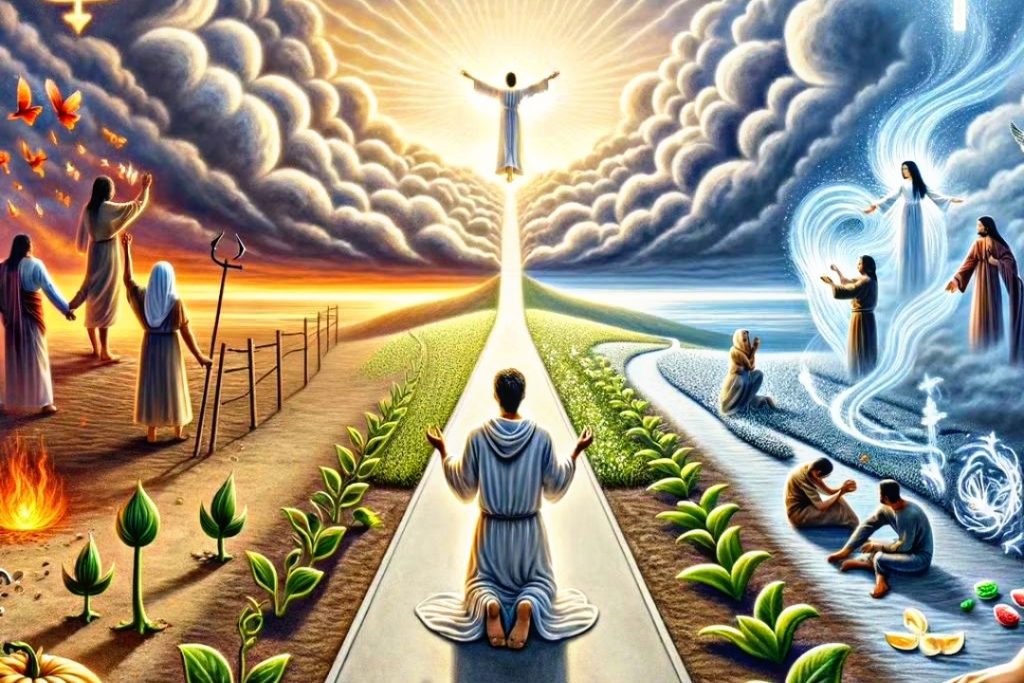Jesus, a name that resonates with billions of people across the world, is central to Christianity and has profoundly shaped human history, culture, and spirituality. Revered as the Son of God, the Savior, and the Messiah, Jesus is also acknowledged in other religions as a prophet and moral teacher. His life, teachings, and ultimate sacrifice continue to inspire, challenge, and transform lives. This article delves into the life of Jesus, his teachings, his historical and theological significance, and the impact of his legacy across the ages.
The Historical Jesus
To understand Jesus, it is essential to explore his historical context. Jesus was born in Bethlehem around 4-6 BCE during the reign of King Herod in Judea, a province of the Roman Empire. His birth is celebrated by Christians as the miraculous incarnation of God, foretold by prophets in the Hebrew Scriptures. According to the Gospels, Jesus was born to Mary, a virgin, and Joseph, a carpenter, fulfilling prophecies about the coming Messiah.
Jesus grew up in Nazareth, a small village in Galilee. While much of his early life remains undocumented, the Gospels describe an incident at the Temple in Jerusalem when he was 12, where his wisdom astonished the elders. This early glimpse foreshadowed the profound impact he would have during his ministry.
The Ministry of Jesus

Around the age of 30, Jesus began his public ministry, which lasted approximately three years. His baptism by John the Baptist marked the start of this period. During this event, the heavens opened, and a voice declared, “This is my beloved Son, in whom I am well pleased” (Matthew 3:17), affirming his divine identity.
1. Teachings of Jesus
The teachings of Jesus, rooted in love, compassion, and justice, remain at the heart of Christianity. Delivered through parables, sermons, and personal interactions, his messages emphasized:
- Love for God and Neighbor: Jesus declared the greatest commandments to be loving God with all one’s heart and loving one’s neighbor as oneself (Matthew 22:37-39). This radical call to love and selflessness defined his ministry.
- Forgiveness and Grace: Jesus preached the importance of forgiveness, teaching that God’s mercy is boundless and urging people to forgive others as they are forgiven (Matthew 6:14-15).
- The Kingdom of God: Central to Jesus’ message was the Kingdom of God, a spiritual realm of peace, justice, and divine presence. He taught that this kingdom is both a present reality and a future hope.
- Humility and Service: Jesus challenged societal norms by uplifting the humble and marginalized, teaching that true greatness lies in serving others (Matthew 23:11).
2. Miracles of Jesus
Jesus performed numerous miracles, which not only affirmed his divine authority but also demonstrated his compassion for humanity. These included:
- Healing the sick, such as restoring sight to the blind and curing leprosy.
- Feeding the multitudes, including the miraculous feeding of 5,000 with five loaves and two fish (John 6:1-14).
- Calming storms and walking on water, showcasing his command over nature (Mark 4:35-41, Matthew 14:22-33).
- Raising the dead, most notably Lazarus, demonstrating his power over life and death (John 11:1-44).
The Passion and Death of Jesus

The final days of Jesus, often referred to as the Passion, are pivotal to Christian theology. His entry into Jerusalem, celebrated as Palm Sunday, marked the beginning of this climactic week. Jesus openly challenged the religious and political authorities of his time, which led to his arrest.
1. The Last Supper
On the night before his arrest, Jesus shared the Last Supper with his disciples. This meal, which Christians commemorate as the Eucharist, symbolized his impending sacrifice. Jesus broke bread and shared wine, saying, “This is my body” and “This is my blood” (Luke 22:19-20), establishing a new covenant.
2. Trial and Crucifixion
Betrayed by Judas Iscariot, Jesus was arrested and subjected to a series of trials before Jewish and Roman authorities. Despite being declared innocent by Pontius Pilate, the Roman governor, he was sentenced to death by crucifixion, a punishment reserved for criminals and slaves.
The crucifixion of Jesus on Golgotha, or Calvary, is the ultimate symbol of his selfless love and sacrifice. Christians believe that through his death, Jesus bore the sins of humanity, offering redemption and reconciliation with God.
The Resurrection of Jesus
The resurrection of Jesus is the cornerstone of Christian faith. According to the Gospels, three days after his death, Jesus rose from the dead. His resurrection was first witnessed by women, including Mary Magdalene, and later by his disciples and many others.
The resurrection affirmed Jesus’ divinity and victory over sin and death. It became the foundation for the Christian proclamation of hope and eternal life. The event of the resurrection transformed the disciples, emboldening them to spread the message of Jesus, even in the face of persecution.
Theological Significance of Jesus

1. Jesus as the Messiah
Christians believe Jesus is the fulfillment of messianic prophecies in the Hebrew Scriptures. He is seen as the anointed one who brings salvation to the world, reconciling humanity with God.
2. Jesus as the Son of God
The doctrine of the Trinity identifies Jesus as the second person of the Godhead, co-equal with God the Father and the Holy Spirit. This belief underscores his divine nature and eternal preexistence.
3. Atonement and Redemption
The death of Jesus is viewed as the ultimate act of atonement. Through his sacrifice, believers are forgiven and restored to a right relationship with God. This theme of redemption is central to Christian worship and practice.
Jesus in Other Religions
Jesus is not only central to Christianity but is also revered in other religious traditions:
- Islam: In Islam, Jesus (known as Isa) is considered a prophet and a miraculous figure. The Qur’an acknowledges his virgin birth, his miracles, and his role as a precursor to Muhammad. However, Muslims do not accept his divinity or crucifixion, believing instead that he was taken to heaven by God.
- Judaism: While Jesus is not recognized as the Messiah in Judaism, his teachings and actions are acknowledged as part of Jewish history.
- Hinduism and Buddhism: In some Hindu and Buddhist interpretations, Jesus is regarded as a wise teacher or an enlightened being, reflecting universal spiritual truths.
The Legacy of Jesus

The impact of Jesus on human history is immeasurable. His teachings have inspired countless movements for justice, compassion, and peace. From art and literature to social reform and humanitarian efforts, the legacy of Jesus continues to shape the world.
1. Art and Culture
Jesus has been a central figure in art, music, and literature for centuries. From Michelangelo’s Pietà to Handel’s Messiah, his life and message have inspired masterpieces that transcend time and culture.
2. Social Reform
The teachings of Jesus have motivated movements for social justice, including the abolition of slavery, civil rights activism, and care for the poor and marginalized.
3. Global Christianity
Today, Christianity, the faith centered on Jesus, is the world’s largest religion, with over 2.4 billion adherents. Churches, missions, and organizations worldwide continue to spread his message of love, hope, and salvation.
Conclusion
Jesus, as a historical figure, religious icon, and moral teacher, remains unparalleled in his influence. His life and message transcend cultural and temporal boundaries, offering hope and guidance to people from all walks of life. Whether as the divine Son of God, the compassionate teacher, or the crucified Savior, Jesus continues to inspire faith, challenge injustice, and call humanity toward love and redemption. The enduring power of his name ensures that the legacy of Jesus will remain central to the story of humankind for generations to come.

